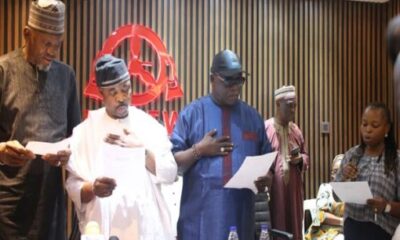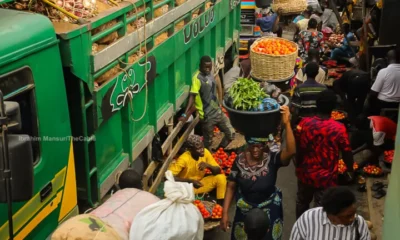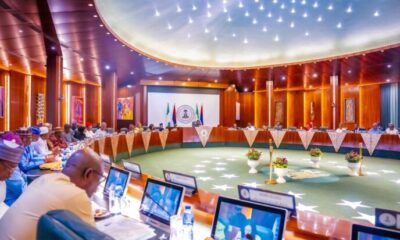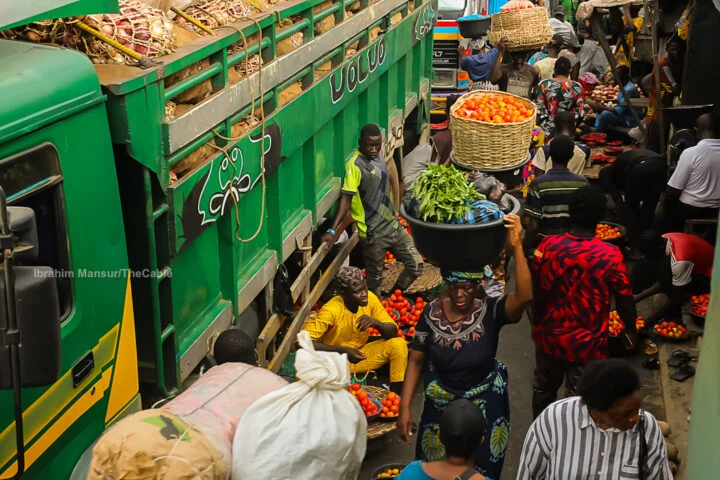Nigeria’s President, Asiwaju Bola Ahmed Tinubu, recently halted the implementation of a hike in electricity tariff and insisted that subsidy be paid on power consumed nationwide, the Minister of Power, Adebayo Adelabu, revealed on Wednesday.
The Minister also stated that the Federal Government would investigate the legality of the five-year licence extension given to privatised power distribution and generation companies, stressing that the operating licences of the firms would have expired on October 31, 2023.
The minister, who spoke at a press briefing in Abuja, further stated that he would sack any non-performing chief executive in agencies under the power ministry, if their non-performance would make him lose his job as minister.
Speaking on the call for a cost reflective tariff, which would lead to a hike in the amount payable for power, Adelabu said, “The power sector is an industry that is very sensitive to any leader.
“You cannot jump overnight and implement the cost reflective tariff. I can tell you that till today the government still subsidises power. Tariff should have been raised months back, but Mr President said until we are able to achieve regular and incremental power supply we can’t touch the tariff.
“So the there is a gap between the cost reflective tariff that we are supposed to charge and the allowed tariff. That huge gap the government is still handling it as subsidy. This affects liquidity in the system, investments and causes so many constraints.”
He noted that the non-implementation of this was actually causing liquidity crisis in the sector, but stressed that the President had refused to allow a raise in electricity rate.
“Now, I never said that it is not yet time to charge cost reflective tariff. Rather, I said cost reflective tariff is supposed to have been implemented months ago because it is the source of liquidity to the system.
“But for political reasons and empathy, you cannot cause additional burden on Nigerians. We just had the removal of fuel subsidy, we are talking about exchange rate skyrocketing, galloping inflation and so many others that bring hardship to the people.
“And Mr President is trying to relieve this hardship through various forms of palliatives. So it is not politically expedient and reasonable to now implement a tariff that is more like dumping the existing tariff.
“We are now paying about N70 (per kilowatt-hour), and it can never be less than N130 or N140 at the exchange rate of today if we are to implement a cost reflective tariff. Because part of the reasons for an increased tariff is the price of gas, which is paid in dollars,” Adelabu stated.
He explained that as at today, 75 to 80 per cent of Nigeria’s power was from gas power plants, “and their raw material is gas. So, once exchange rate goes up, the cost of gas also goes up and it affects the tariff.”
He, however, pointed out that tariff would be increased at the appropriate time, which would be after a lot of sensitisation and communication with the public, adding that there must also be an assured incremental and regular supply.
The minister said the about 4,000 megawatts power generation in Nigeria was shameful and unacceptable, noting that efforts were being made to increase this.
He stressed that any senior official in the ministry and its agencies who fails to deliver would have to leave, as the President had told his ministers that they must perform or be fired.
“I’m using this medium to tell my colleagues who will work with me that if your activity is not supporting my retention, you’ll leave before me. Because for me, I don’t wait to be sacked, the moment I’m not performing, I’ll leave honorably.
“But before I leave I’ll explore every opportunity to ensure I deliver, because this is not personal, this is national and national interest must prevail. So all the players in the power sector must support my vision, so that I can support Mr President’s vision,” Adelabu stated.
The minister maintained that the privatisation of the power sector in 2013 was a mistake, stressing that commercialisation should have been better.
He, however, noted that the Federal Government could still take control of the power distribution companies despite owning 40 percent stake in the various firms.
He said the government might also carry out a review of the territorial coverage of the Discos, as most of them were handling so large territories and were delivering below expectation.
The minister said when he resumed office, the licences of the privatised power firms which he saw were for 2013 to 2023, but along the line he got to hear that there was an extension by another five years.
He said this was being investigated, adding that the government would sit with the private sector operators to agree on a performance bond which the power firms must meet.
“That is what actually matters to us now, but I can tell you that I’ve ordered an investigation into the extension of the licences, (which was) not by this administration. So we want to investigate what truly happened.
“How legally correct was it, how contractually correct was the extension?” Adelabu stated.
Whether Nigeria had started supplying power to Niger Republic, the minister said, “We have not started. We are just messengers, when they ask us to resume, we will resume.”
He said the situation in the affected country was still being monitored by the Federal Government.
According to statistics from the National Bureau of Statistics, total number of electricity customers in Q1 2022 stood at 10.63 million and 10.81 million in Q2 2022, showing a rise of 1.67 per cent on a quarter-on-quarter basis.
On a year-on-year basis, customer number in Q1 2022 declined by 1.36 per cent from Q1 2021 (10.78 million), and also fell in Q2 2022 by 2.27 per cent from Q2 2021 (11.06million).
Metered customers stood at 4.79 million in Q1 2022 and 4.96 million in Q2 2022, indicating a 3.53 per cent increase on a quarter-on-quarter basis.
Electricity supply declined compared to 6,172.19 (Gwh) and 5,882.57 (Gwh) reported in Q1 2021 and Q2 2021 respectively. Revenue generation by the DISCOs stood at 204.74 billion in Q1 2022 and 188.41 billion in Q2 2022. This shows a fall on a quarter-on-quarter basis by 7.97 percent. On a year-on-year basis, revenue collected rose by 11.42 percent and 1.71 percent respectively from 183.74 billion Q1 2021 and 185.24 billion in Q2 2021.
Credit: The Punch

 BIG STORY1 day ago
BIG STORY1 day ago
 BIG STORY2 days ago
BIG STORY2 days ago
 BIG STORY1 day ago
BIG STORY1 day ago
 BIG STORY2 days ago
BIG STORY2 days ago
 BIG STORY5 days ago
BIG STORY5 days ago
 BIG STORY3 days ago
BIG STORY3 days ago
 BIG STORY4 days ago
BIG STORY4 days ago
 BIG STORY4 days ago
BIG STORY4 days ago





























